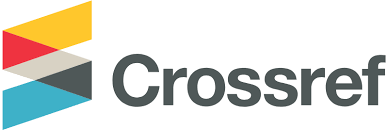Augmented Reality As A Reinforcement Of Cellular Concepts In Students Of Vocational Secondary Education Of The Institution Ciudadela Educativa Del Magdalena Medio
DOI:
https://doi.org/10.47422/preprintpol.16Keywords:
Augmented reality, cell, biology teaching, Saber 11 tests, secondary education, gamificationAbstract
This project explores the use of augmented reality (AR) as a pedagogical strategy to improve the understanding of cellular concepts in tenth grade students of the official educational institution Ciudadela Educativa del Magdalena Medio, in the municipality of Barrancabermeja, Santander – Colombia. This project was born from the need to strengthen learning in cell biology topics, a fundamental area in the Natural Sciences component of the ICFES Saber 11 tests of the state in Colombia, where the institution has shown limited results in recent years.
The project used a random experiment group of the tenth grade, in which a pre-test was applied on specific concepts of biology, especially the cell as the protagonist of all living beings, with which it was hoped to improve the results in terms of the average evaluated by components, taking into account that in 2016 was the year in which a score above the average was obtained 52.24 and in the following years this score decreased significantly, so in 2023 the score was below the average of 45, this encouraged the development of the project.
Augmented reality educational content was developed that, through diagnostic tests and post-intervention evaluations, allowed improvements in learning to be observed.
The results obtained suggest that augmented reality is an effective tool to strengthen competencies in natural sciences in preparation for the ICFES Saber 11 tests, obtaining a score of 47 points in 2024, which indicates that it increased by two points compared to the previous year, which shows that the strategy turns out to be positive for the objective of the project.
Downloads
References
[1] H. Quinto y M. Machado. (2020). Uso de dispositivos móviles para el desarrollo de la competencia indagación de procesos en ciencias naturales. Recuperado de https://repositorio.udes.edu.co/bitstreams/182c8ff9-b272-4ffd-a590-102139e934a8/download
[2] M. Cevallos. (2020). Influencia de la aplicación móvil ARCELL con realidad aumentada en el aprendizaje de la célula en alumnos del segundo grado de la IE secundaria Leoncio prado de Champaccocha – San jerónimo. Recuperado de https://repositorio.unajma.edu.pe/bitstream/handle/20.500.14168/613/Melanio_Tesis_Bachiller_2020.pdf?sequence=1&isAllowed=y
[3] Grupogeard. (S. F). Prueba de Ciencias Naturales ICFES saber 11. Recuperado de https://grupogeard.com/co/blog/icfes-saber/icfes-saber-11/prueba-ciencias-naturales/
[4] Rodríguez, M. (2001). La concepción científica de célula para la enseñanza de la biología. Una reflexión aplicable a la escuela secundaria. Revista de Educación en Biología. Asociación de Docentes de Ciencias Biológicas de la Argentina. Córdoba. Argentina.
[5] Educacióntrespuntocero. (2023). Realidad aumentada. Recuperado de https://www.educaciontrespuntocero.com/tecnologia/realidad-aumentada-educacion/
[6] Educativa. (S.F). Gamificación el aprendizaje divertido. Recuperado de https://www.educativa.com/blog-articulos/gamificacion-el-aprendizaje-divertido/
[7] Villalobos López, J.A. (2024). Marco teórico de realidad aumentada, realidad virtual e inteligencia artificial: Usos en educación y otras actividades. Emerging Trends in Education, (6)12, 1-1 7. https://doi.org/10.19136/etie.a6n12.5695
Downloads
Posted
License
Copyright (c) 2025 Eva Sandrit Romero Vides , Juan Carlos Sandoval Quiceno , María Yecenia Ortiz Segura (Author)

This work is licensed under a Creative Commons Attribution 4.0 International License.








